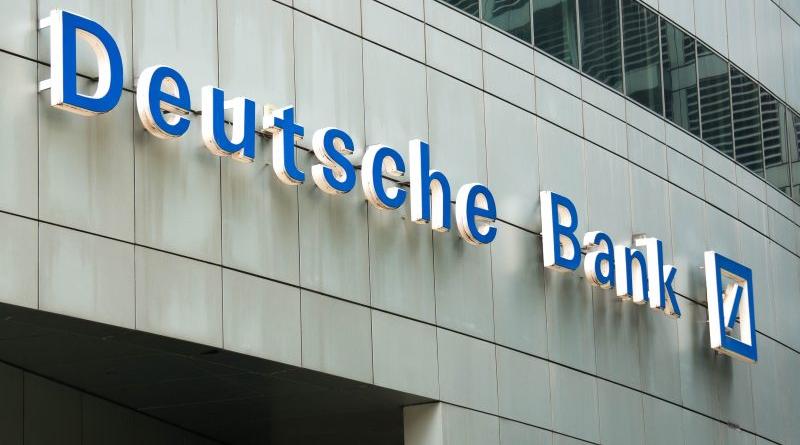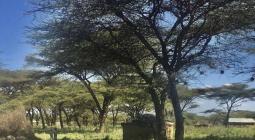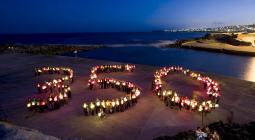Deutsche Bank faces AGM protests over fossil fuel finance

Germany - On Thursday 19th May climate justice activists will take part in a series of coordinated protests targeting Deutsche Bank on the day of the bank’s Annual General Meeting. Protests will take place in Frankfurt, Berlin and Leipzig, online activists will take over the digital space set up by Deutsche Bank for their AGM, and a speech will be delivered inside the AGM by Luisa Neubauer. Germany’s largest lender is coming under increasing pressure for financing fossil fuels and has refused to publicly rule out support for the destructive East Africa Crude Oil Pipeline (EACOP).
Photo and video content will be available here
Who:
Climate justice groups including: Koala Kollektiv, Parents for Future and Letzte Generation Berlin and Extinction Rebellion Leipzig.
What:
· Frankfurt: The KoalaKollektiv will stage a visual protest at 8am CEST in front of Deutsche Bank headquarters. Activists will install washing machines that ooze green foam to denounce the bank’s greenwashing. Despite the bank being part of the Net Zero Banking Alliance they still invest billions in fossil fuel companies.
· Inside the AGM: Luisa Neubauer will deliver a virtual speech between 10am - 12pm CEST. The co-founder of Fridays for Future will speak to shareholders to confront Deutsche Bank’s role as a major investor in oil giant Total Energies. Footage of the speech will be shared here.
· Berlin: Parents for Future are taking action to demand a safe future for their children. The details of the action are confidential. Social media content can be expected between 10:30am and 12pm CEST.
· Leipzig: Extinction Rebellion Leipzig will bring an oil pipeline and fake oil to the local Deutsche Bank branch at 4pm CEST. Speeches from Ugandan activists will be read. Extinction Rebellion is one of a growing number of climate groups who address the role of fossil finance in perpetuating the climate crisis. Footage will be provided here.
Why:
Since the Paris Agreement was signed in 2015 Deutsche Bank has pumped more than 1.8 billion euros into Total, and just last month the bank contributed to a 8 billion dollar financing package for the oil giant. On Sunday night activists projected images on the bank’s Frankfurt HQ with Nakabuye Hilda Flavia and Luisa Neubauer confronting Deutsche Bank on their role in perpetuating the climate crisis. The following day an anonymous source within Deutsche Bank privately briefed journalists that the bank will not be providing dedicated finance to the planned East African Crude Oil Pipeline (EACOP). While it is an important step that demonstrates the power of public pressure, civil society groups responded to the reports with a joint statement and the following demands:
1. Publicly rule out finance for EACOP at its AGM;
2. Develop a strong oil and gas policy that excludes corporate financing for companies planning new oil and gas projects, like Total.
East Africa Crude Oil Pipeline facts:
· The East Africa Crude Oil Pipeline (EACOP) will be more than 1,400 km long – the distance between Paris and Rome – and would run alongside Lake Victoria basin, which is the continent’s largest freshwater reserve and the source of the Nile, between Uganda and Tanzania.
· The oil would be heated permanently to 50°C to keep it fluid and transport it to the port of Tanga, in Tanzania, and into international shipping tankers.
· This pipeline would transport 200,000 barrels of oil per day and generate up to 34 million tons of carbon emissions each year – seven times what Uganda emits each year and about 1/16th of France’s emissions.
· More than 100,000 people are being forced off their land and expropriated.
· The project risks poisoning the water resources and wetlands of Uganda and Tanzania, including the Lake Victoria Basin, on which more than 40 million people depend for drinking water, food production and their livelihoods.
· This will violate a multitude of human rights: the right to property, the right to an adequate standard of living, the right to food, the right to education, the right to health, the right to adequate housing, the right to life and safety, the right to freedom of expression, assembly and association, and the right to free, prior and informed consent.
· There are threats, harassment, intimidation, attacks, arrests and imprisonment of environmental, human rights and journalistic defenders.




